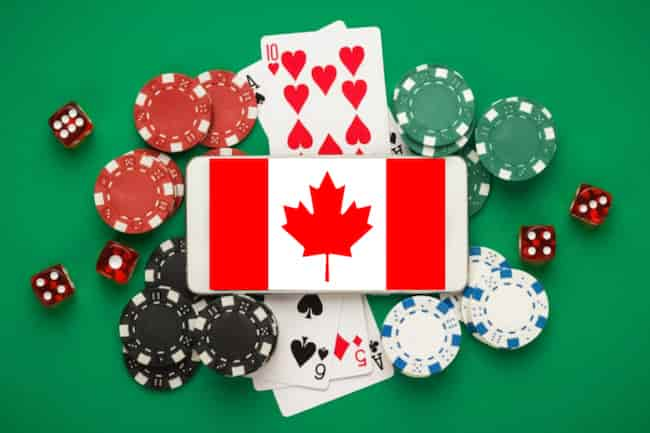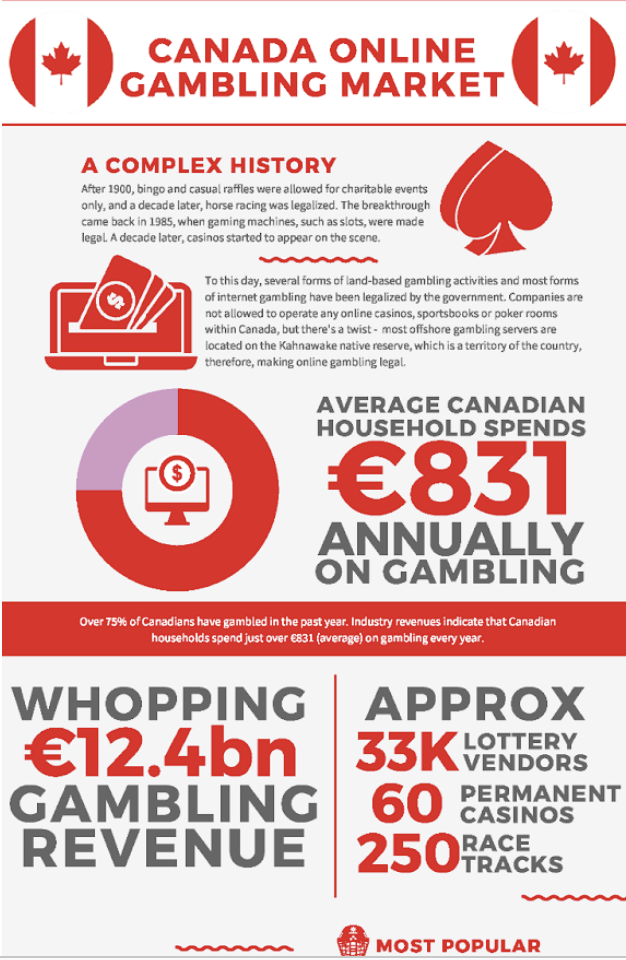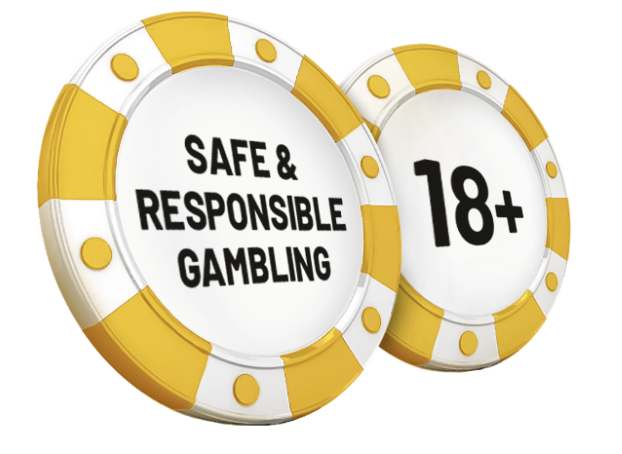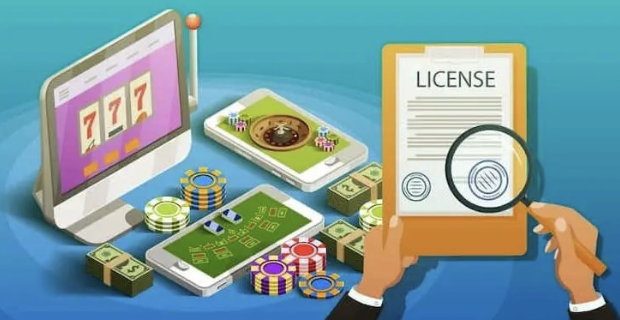Gambling Regulation in Kahnawake – Discover The Gambling Laws

Nestled along the St. Lawrence River shores, Kahnawake, a Mohawk territory, boasts a rich cultural heritage and a unique legal framework. Steeped in tradition and history, this Kahnawake territory overview showcases the vibrant community that has also become a significant player in the casino world.
The Commission holds the official authority for licensing and regulating gaming activities within or related to this Mohawk Territory.
Understanding the importance of Kahnawake gambling regulation is not merely an academic exercise but an essential facet of comprehending the global betting landscape. This Gaming Commission, with its well-established reputation for fairness and integrity, serves as a beacon in the industry. Its influence extends far beyond the borders of this territory, impacting operators and players worldwide.
In this article, you will get an insightful overview of Kahnawake's gambling regulations, the role of the Gaming Commission, and the pertinent laws.<\p>
History and Establishment of the Kahnawake Gaming Commission

This said commission is like a rule-maker for online casinos and betting. They ensure that online casinos, poker rooms, and sports betting websites follow the rules. Regarding Kahnawake Gaming Commission history, this Commission started in 1996 because the leaders of the Mohawk Territory made a law.
This law said that they should control how betting happens here. The Commission licenses these betting places, and they watch to ensure everything is fair. It is one of the longest-standing online casino regulators in the Canadian betting landscape.
What are the Responsibilities of Kahnawake Gaming Commission
The Kahnawake Gaming Commission has several important roles in the betting world:
- Licensing and Regulation: They are the official group that gives licenses and makes rules in this territory. They’ve been doing this since 1999, making them one of the oldest rule-makers in the business.
- Support for the Industry: They make rules that help betting and casinos grow and ensure it’s safe. They want to control online gambling and protect young people.
- Ongoing Supervision and Monitoring: They watch over the places they’ve given licenses to, ensuring they follow the rules.
- Ethical and Trustworthy: People trust them because they are honest and fair. If a casino has a specific license, they are playing by the rules and not cheating.
- Dispute Resolution: If players have problems with casinos, the Commission helps to solve these problems fairly. They use third parties to help sort things out.
- International Partnerships: They have friends in other places that make specific rules, like Antigua, Malta, and Alderney. They also work with groups in Ontario and California.
In short, the Kahnawake Gaming Commission is like a referee, ensuring it’s fair and safe for everyone. You can read more about them here.

Different Types of Kahnawake Gambling Licenses
Kahnawake offers various types of gambling licenses to cater to different aspects of the gaming industry. These licenses include:
- Interactive Gaming License: This is for online casinos, poker rooms, and sports betting sites that want to operate in this region.
- Client Provider Authorization: For businesses that provide services to gaming operators, like software developers and payment processors.
- Secondary Client Provider Authorization: Similar to Client Provider Authorization, but for businesses that provide services to those with the primary Client Provider Authorization.
How to Get a Kahnawake Gambling License
To obtain a Kahnawake gambling license, follow these steps:
- Contact the Commission: Reach out to the correspondent gaming commission to express your interest.
- Application Submission: Submit a detailed application with all required documents, including financial statements and background checks.
- Review and Investigation: The Commission will review your application and conduct thorough background checks on the applicant and key personnel.
- Compliance Assurance: Demonstrate that your operation will adhere to the regulations, including fair play and player protection.
- Licensing Decision: Once approved, the Commission will grant the appropriate license.
What is the Kahnawake Gambling License Fees
The fees associated with the local specific licenses vary depending on the type and scope of the license. Generally, the fees for obtaining a corresponded gambling license vary depending on the chosen services and package. Here are the approximate costs:
- Application Fee: To kickstart the process, there’s an initial fee of $40,000. This covers the first year’s licensing fee and the Key Person License Application. (source: FastOffShore)
- Total Cost: The minimum cost for securing a gambling license is $61,000, not including expenses related to the Commission’s evaluation of the Control System Submission. (Source: slotegrator)
- Turnkey Packages: Some companies offer packages that include the license cost, starting at around $22,500. However, the price may fluctuate based on the range of services provided.
- Additional Fees: Besides the application and license fees, there might be extra charges in the licensing process. These can encompass assessments of the Control System Submission, Key Person Licenses, and Certified Public Accountants (CPA) fees.
Remember that these figures are approximations and are subject to potential changes.
Kahnawake Gambling Audits
This gaming commission conducts regular monitoring and audits to ensure the fairness and integrity of gambling operations. These audits, known as Kahnawake gambling audits, involve meticulous checks and reviews of licensed entities to verify compliance with regulations, fair gaming practices, and financial stability. The Commission’s commitment to auditing plays a crucial role in maintaining a trustworthy gambling environment.
Measures of Compliance and Anti-Fraud in Kahnawake
The Commission takes stringent measures to enforce compliance and combat fraud within the Kahnawake gambling industry. They closely scrutinize licensees to ensure they adhere to regulatory requirements. Anti-fraud efforts include thorough background checks, financial monitoring, and security protocols to protect players and maintain the credibility of this gaming operations.
Kahnawake Responsible Gaming Measures for Consumer Protection

The Gaming Commission places a strong emphasis on player safety and responsible gaming, implementing a range of Kahnawake responsible gaming measures. These measures include:
- Player Age Verification: Stringent checks to ensure that players are of legal gambling age, preventing minors from participating.
- Self-Exclusion Programs: Providing players with options to self-exclude if they need a break from gambling.
- Responsible Gaming Resources: Offering resources and information to promote responsible gambling practices.
- Problem Gambling Assistance: Assisting individuals with gambling problems by connecting them with support organizations.
Kahnawake Gambling Dispute Resolution Process
In case of disputes between players and gambling operators, the Gaming Commission has a structured dispute resolution process. This process typically involves mediation and arbitration to reach a fair resolution, ensuring that players’ concerns are addressed impartially and efficiently.
Online Gambling Regulation: Kahnawake Online Gambling Licenses
Kahnawake online gambling licenses are specific authorizations the Gaming Commission granted to operators engaged in online gaming activities. These licenses cover various aspects of online gambling, including casino games, poker rooms, and sports betting. Operators holding these licenses must adhere to strict regulations to ensure fair play and player protection.

International Operators in Kahnawake: How Kahnawake Deals with Them
The region is open to international operators seeking to establish their online gambling presence. The Gaming Commission has established procedures and requirements for international operators interested in operating from within the jurisdiction. These operators must meet the Commission’s standards and gambling regulations to obtain licenses and operate legally within the region showcasing the Commission’s commitment to fostering a global and reputable online gambling industry.
Kahnawake Gambling Controversies and Legal Challenges
The Kahnawake Gaming Commission has faced various controversies and legal challenges. These have primarily centred on concerns about the jurisdiction’s online gambling operations. Some key issues include disputes with international regulatory bodies and criticisms of its licensing practices.
How the Commission Has Adapted or Responded
In the Kahnawake Gaming Commission responses to these controversies and challenges, the Gaming Commission has adapted by enhancing its regulatory framework and transparency measures. They have engaged in open dialogues with concerned parties and international regulators to address issues and improve cooperation. These responses aim to strengthen the Commission’s reputation and ensure the continued fair and responsible online gambling operation within Kahnawake.
Conclusion
The significance of Kahnawake gambling laws cannot be exaggerated. These regulations ensure fair play, player protection, and the integrity of online gaming within the jurisdiction. As consumers of online gambling services, it’s essential to prioritize safety and fairness. Therefore, we encourage you to verify online gambling operators’ proper licensing and adherence to Kahnawake laws. Doing so guarantees a secure gaming experience and supports the continued growth and sustainability of this unique gaming community. Responsible gaming starts with knowing your rights and protections under Kahnawake’s regulations.
Recommendations for Canadian Players
Best low deposit casinos: 1 dollar deposit, 5 dollar deposit
Brands: Zodiac Casino, Captain Cooks
FAQs
- What types of gambling are legal in Kahnawake?
-
In Kahnawake, various forms of gambling are legal, including online casinos, poker rooms, sports betting, and land-based poker rooms.
- How do I know if a Kahnawake-licensed casino is legitimate?
-
To verify the legitimacy of a Kahnawake-licensed casino, you can check the official website of the Kahnawake Gaming Commission for a list of authorized operators. Ensure they hold a valid license issued by the Commission.
- Can non-residents gamble at Kahnawake-licensed casinos?
-
Yes, non-residents can gamble at Kahnawake-licensed casinos. These casinos are open to players from around the world.
- What measures are in place for responsible gambling?
-
Kahnawake promotes responsible gambling through measures like age verification, self-exclusion programs, and providing resources for problem gambling assistance.
- How does the Kahnawake Gaming Commission handle disputes?
-
The Commission has a structured dispute resolution process that may involve mediation and arbitration to ensure fair resolutions to player disputes.
- Are Kahnawake-licensed casinos allowed to operate internationally?
-
Yes, Kahnawake-licensed casinos can operate internationally. The Commission has procedures for international operators seeking licenses.
- What are the penalties for illegal gambling in Kahnawake?
-
Penalties for illegal gambling in Kahnawake can vary but may include fines and legal actions against the individuals or entities involved.
- How do I report suspicious or fraudulent activity?
-
You can report suspicious or fraudulent activity related to Kahnawake-licensed casinos directly to the Kahnawake Gaming Commission through their official channels.
- Are my winnings taxed in Kahnawake?
-
Winnings from gambling are typically not taxed in Kahnawake, but it's essential to check local tax regulations in your residence.
- How do I stay updated on changes to Kahnawake gambling laws?
-
To stay updated on changes to Kahnawake gambling laws, visit the official website of the Kahnawake Gaming Commission, where they often post updates, news, and regulatory changes.
